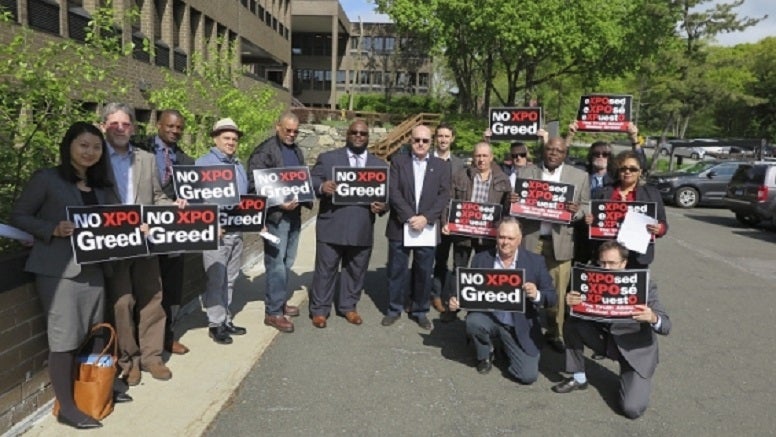Uncategorized
New Bill Cracks Down on Sky-High CEO Pay

The Teamsters for years have been at the forefront of pushing back on excessive CEO pay. Now the union is glad to see some on Capitol Hill agree.
Lawmakers yesterday rolled out the Tax Excessive CEO Pay Act, which would impose tax rate increases on companies with CEO-to-median-worker pay rates greater than 50-to-1. Penalties would begin with a 0.5 percent corporate rate tax increase for those at the lower end, rising to a five percent increase for companies with a ratio greater than 500-to-1. The tax is expected to raise $150 billion over 10 years.
“It is unjust and unacceptable that the CEOs of major corporations are making an average of 287 times more than their average worker – with some CEOs making upwards of 1000 times more,” said Rep. Barbara Lee (D-Calif.), a lead sponsor of the measure. “The Tax Excessive CEO Pay Act will incentivize companies to reduce the CEO-worker pay gaps and pay their workers the wages they deserve. Because if companies can afford to pay their CEOs tens of millions of dollars, they can afford to raise wages for their employees.”
The legislation, which is also sponsored by Rep. Rashida Tlaib (D-Mich.) and Sen. Bernie Sanders (I-Vt.), is seen as an essential step in pushing back against excessive executive compensation, and would apply to all private and publicly held companies earning $100 million or more in annual revenue. The U.S. Treasury Department would be charged with issuing rules to prevent corporate tax avoidance as well to require privately held companies to make their pay ratio data public.
Several Teamster employers have been guilty of such a pay disparity, including XPO Logistics, where CEO Bradley Jacobs’ pay exceeds workers 361:1; Republic Services Group, where CEO Donald Slager’s pay is 183 times higher than the average worker; and UNFI, whose CEO Steven Spinner earns 96 times the company’s median worker.
It is expected that the new tax will discourage runaway executive pay that has been a leading cause of the nation’s growing income divide. While the earnings of the top 0.1 percent of U.S. earners grew by nearly 340 percent between 1978 and 2017, the Economic Policy Institute found CEO pay grew three times faster than that rate.
Bill co-sponsors and the Teamsters agree that the tax is needed to curb the incentive to take excessive risks. Wall Street’s reckless “bonus culture” proved a key factor in the 2008 financial crisis. Current executive compensation practices also contribute to short-term decision making that leaves payrolls, employee training and R&D budgets slashed.
CEO pay excess undermines democracy as well. The best evidence of the CEO pay contribution to the nation’s increasing trend towards oligarchy: Of the top 100 political donors in the 2018 election, more than 80 percent turned out to be either current or former top executives.
Corporate bosses must be held accountable. Doing so just won’t help their employees, but the public at large as well.